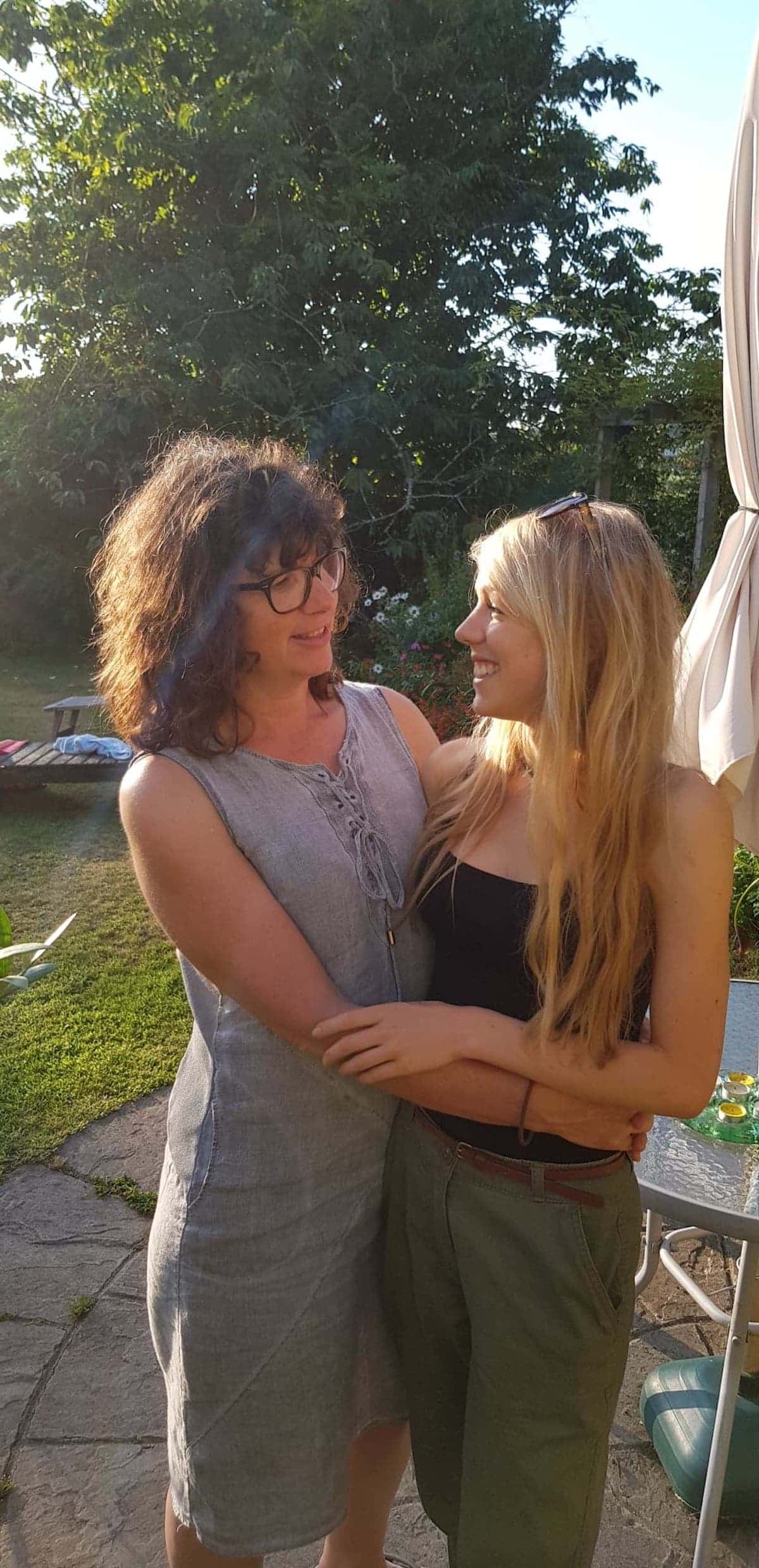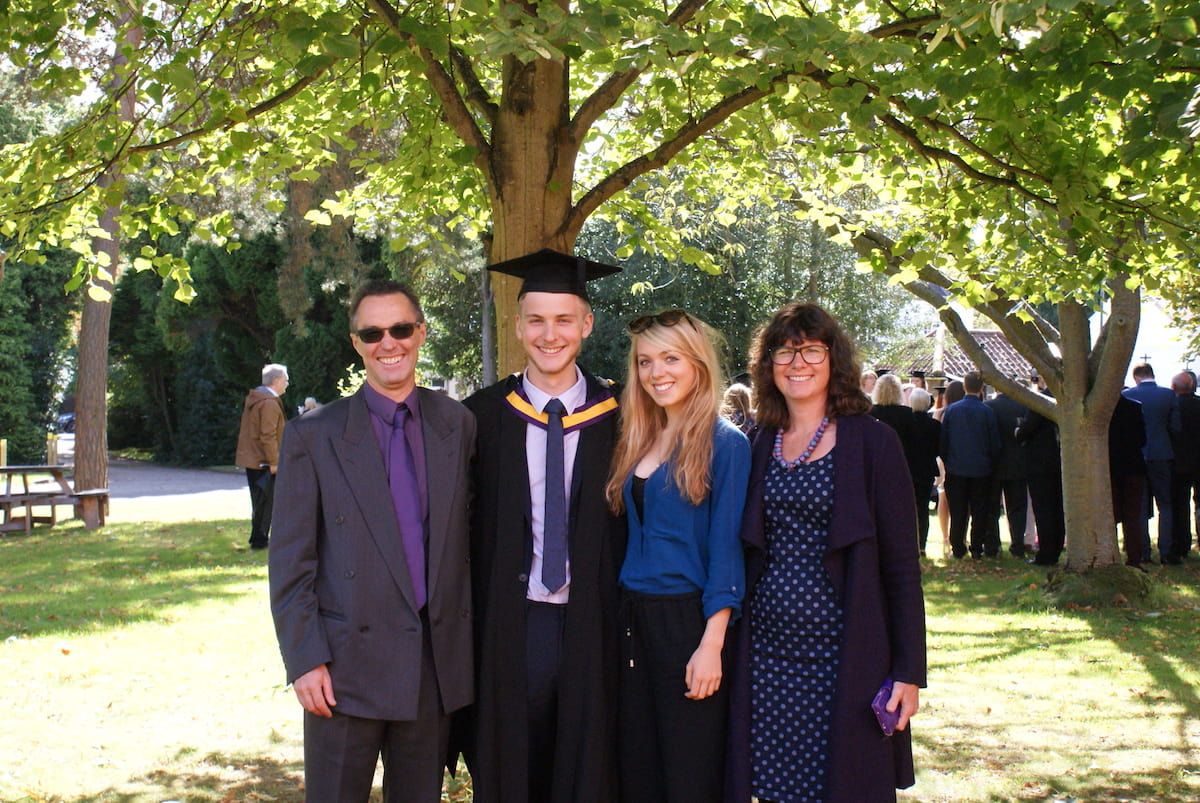Recognising her child’s eating disorder was one thing, but knowing how to support her, while pushing forward as a family, was another
It was Easter 2010, and it seemed that life couldn’t get any better. My direct-selling business was booming and, the year before, we had taken a dream family holiday to Florida. Our son had started to settle in secondary school, and our daughter, Katharine, had completed an amazing final year in primary.
In the run up to Easter there had been the usual banter about what Easter eggs the kids were hoping to have. I had noticed that Katharine hadn’t taken a yoghurt to school for a while, and spoke to a GP friend about my concerns. She reassured me there wasn’t a problem.
On Easter morning, Katharine happily opened her egg, broke off a tiny square of chocolate, ate it with relish, and declared she was full! I can still feel that moment. It was like the floor was opening up, and my world was falling apart. I looked at our beautiful, vivacious daughter, how had I not noticed before? How had I not seen how thin she was?
Confronting the situation seemed to make matters 10 times worse. She had obviously been reducing how much she ate, but now it was out in the open, she seemed to eat even less. There followed a round of waiting rooms, doctors’ surgeries, and weighing scales.

Ruth and Katharine
We discovered that all our socialising had revolved around food – when we visited friends, had people over, or went out, there was always a meal involved. Not only did we feel too exhausted to socialise, but the challenge of food being involved on these occasions made it too stressful. We became very isolated and insular.
In order to get a diagnosis of anorexia, the person has to lose a certain amount of weight over a certain amount of time, so we waited. As her bones began to protrude, the books I read by professionals for professionals informed me that people die from anorexia. That wasn’t an option I was prepared to accept for our daughter.
The journey I’d been on with my business made me believe that we can take responsibility for our own lives, and steer things in the direction we want them to go, so I scoured the internet for information that might help us.
At that time, a decade ago, resources on mental health were harder to find.
Eventually I found a book written by a mother – Mum, Please Help, by Karen Phillips – that talked about neuroplasticity (the ability of the brain to change throughout an individual’s life). I started working with Katharine to do the things the book talked about.
We played a game called “Who are you?”, where I repeatedly asked her the same question. In the beginning she had nothing to say, but after several weeks of repeating this every night she eventually became a daughter, and then a sister, and then a friend.
We found things to laugh about as a family. Laughter had become very scarce in our family, so we started watching loads of rubbish – but funny – movies. We created vision-boards for ourselves, so that we could see our future.
Katharine wrote affirmations over and over again, and we walked outside and talked.
Recovery felt like a very long, slow process, in a “two steps forward and one step back” kind of way. The first year was the hardest; in the second I kept thinking that things were better, although six months later I’d realise it had still been pretty bad. About two-and-a-half years after we first realised she was struggling, I felt I could describe Katharine as better.
Remarkably, my business had survived me being focused on Katharine, but I was completely changed as a person. I had been so challenged, I now felt in need of a new, and different, future.
Ruth with her family
I had been coaching in my business for 13 years, but without any formal qualifications – only years of reading and practise – so it felt like the right time to enhance my tool kit. I started my coaching training with the view that I would simply take it back to my direct-selling business. However, while on the course, and practising with friends and family, I started to appreciate how powerful coaching was.
One day we were asked to consider what our ideal coaching business would look like? I suddenly knew that I needed to be outside more. I started coaching my friends outside, and magic happened. I was blown away by how much more powerful it was.
Interestingly, it wasn’t until more than a year later, when Katharine and I wrote a book about our experiences (Our Journey with Anorexia: How a parent can be part of their child’s recovery) that I realised that all of our really useful conversations had taken place outside.

During Katharine’s recovery, I’d seen that the things that made a real difference were simple – they weren’t easy, but they were simple! I was frustrated that it had been so difficult to find these simple ideas that help people look after themselves, mentally and emotionally. I wanted to change that.
So, in the autumn of 2013, Fresh Air Fridays was born. We explored things, such as: “What does looking after me mean?” We spent some time being in the present moment in nature, we learnt to listen to one another, we had some time for a gratitude practise, and a relaxation exercise, and we connected with like-minded people.
The early days of any business can be challenging, and I have been exceptionally lucky to work with a wonderful business partner, Rose Dixey, who has had her own life challenges. What we both find is that by really living the ideas that we share, we are able to create lives that work for us.
Katharine acknowledges that what we have been through together has made us the people we are today. She and I are very close, both as mother and daughter, and as friends. She continues to thrive, is loving university life, and works hard so that she can travel in her holidays. Her plan for the future is to become a clinical psychologist, and I don’t doubt that her own experience will be of benefit to the people she works with.
The journey we have been on as a family isn’t one that I would wish on anybody, however the outcome is that we all feel much stronger and more resilient. Both Katharine and I are clearly on paths that will have us do what we can to help other people suffer less.
I am really proud to say that Fresh Air Fridays provides the space, support, and skills to enable people to look after their mental and emotional wellbeing. I like to tell people: “We take you outside so that you can feel good on the inside!”
Fe Robinson | MUKCP (reg) MBACP (reg), psychotherapist and clinical supervisor, says:
Ruth’s commitment to her daughter’s wellbeing shines through in her story. She was tenacious in finding solutions that worked for her family, and helps us by sharing how they weren’t complicated things, but were about finding their individual and shared identities. What a powerful realisation that being in nature was so beneficial – a connection beyond the self that enhances wellbeing and makes harmony and recovery more possible.



Comments